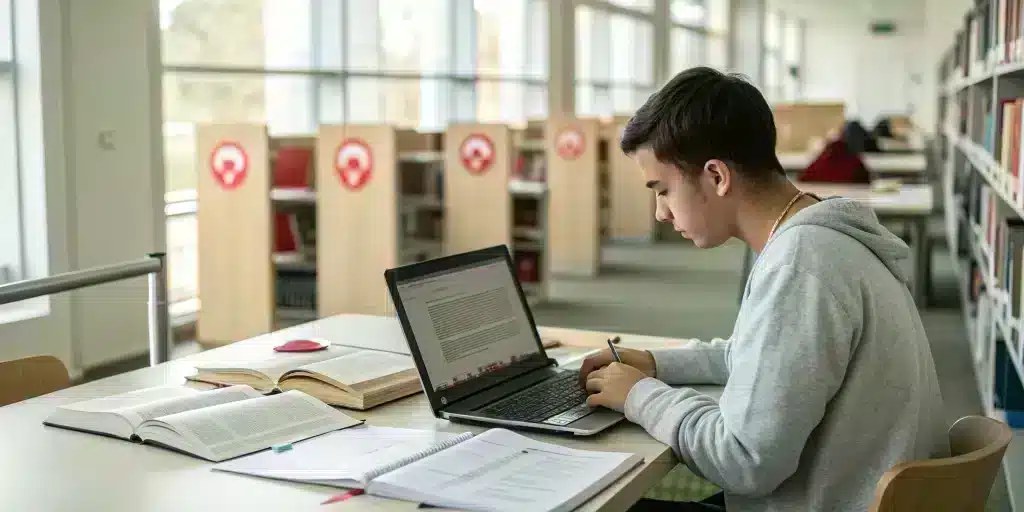Understanding Turkish Internet and Censorship Laws Relevant to Students
How Censorship Works in Practice
Implications for Students
Enforcement and Penalties
Summary for International Students
Key Legislation on Internet Use and Censorship
Turkiye has established a structured legal framework that governs internet use, primarily encapsulated in Law No. 5651, commonly referred to as the Internet Law. This legislation lays down the foundational rules for online content and service providers, primarily impacting how Internet Service Providers (ISPs) operate.
Law No. 5651 (Internet Law)
- Purpose: This law establishes the legal parameters for internet platforms, detailing how ISPs must function and the mechanisms they must follow for content restriction and site blocking.
- Scope: It empowers regulatory bodies to take swift action against perceived unlawful content.
2022 Legal Amendments
- Criminalization of False Information: The amendments introduced penalties for disseminating false information, imposing prison terms ranging from one to three years.
- Increased Oversight: Enhanced government authority over online news and social media, with stringent compliance requirements for tech companies.
How Censorship Works in Practice
Censorship in Turkiye operates through various channels and is primarily enforced by the Information and Communication Technologies Authority (BTK). Understanding how this censorship manifests can help international students navigate their rights and responsibilities.
Mechanisms of Censorship
- Blocking of Content: Websites and online content can be blocked by court order, public prosecutors, or through BTK directives.
- Swift Action by ISPs: ISPs are mandated to block URLs or entire sites within four hours of receiving an order.
- Restrictions on International Websites: Foreign-hosted sites may also face restrictions if they house material deemed illegal under Turkiye’s laws, covering a broad spectrum from obscenity to disrespectful content concerning national figures.
Impacts on Online Speech
Students studying in Turkiye must exercise caution regarding their online expression. Local regulations can impose serious consequences for sharing news, personal opinions, or sensitive information that may conflict with Turkish law.
Implications for Students
The implications of these regulations are significant and multifaceted for international students studying in Turkiye.
Access to Information
- Blocked Resources: Certain educational and news websites may be inaccessible, potentially limiting students’ access to vital information necessary for their academic work.
- Social Media Compliance: Students must be mindful of the content they post on social media platforms to avoid unintentional violations of the law, which could include sharing opinions or information that the government finds unfavorable.
Compliance Requirements
Many international tech companies are required to maintain a local presence in Turkiye. This requirement comes with specific compliance protocols:
- Content Removal and Data Disclosure: Companies must comply with requests for content removal and user data disclosures, failing which they risk penalties including bandwidth reductions.
Privacy Considerations
Students should also be aware of privacy issues. The regulatory framework allows for user data requests from social media companies, impacting expectations regarding online anonymity and privacy.
Enforcement and Penalties
The enforcement of these regulations is strict. Key points include:
- Heavy Fines for Non-Compliance: ISPs or platforms that fail to follow Turkish regulations may face significant fines or technical measures that limit their services within the country.
- Criminal Charges for Individuals: Persons disseminating content that the laws classify as false or illegal may face administrative actions, criminal charges, or even imprisonment.
Summary for International Students
For international students in Turkiye, it is imperative to familiarize themselves with the country’s strict internet regulations. Unlike their home countries, students may find that the level of access to information, the freedom to express opinions, and expectations of online privacy differ markedly.
Engaging with these laws proactively is vital to ensure compliance and avoid consequences that could inadvertently affect their academic and personal lives. By understanding these dynamics, students can better navigate their experiences and make the most of their time in Turkiye.
As you prepare for your educational journey, remember that at Study in Turkiye, we provide tailored support to help you navigate not just your university admissions but also the cultural and legal landscape you will encounter.
Take the Next Step with Study in Turkiye
Are you ready to explore your educational journey in Turkiye? Let us assist you in finding the right university and navigating the landscape of student life in Turkiye.

